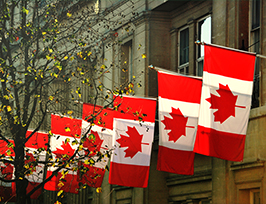
Weather in Vancouver
January Weather in Vancouver, Snowfall is rare in winter, with a lot in some winters. but rain is the norm with November & December as the rainiest months, but January continues to be very rainy. Be prepared for rain on any given day.
February Weather in Vancouver starts to warm up and is especially mild compared to the rest of Canada. You may even see some early blossoms. February continues to have a fair amount of precipitation, so be sure to dress for the weather.
March Weather continues to warm up – and is especially mild compared to the rest of Canada. This is Spring period. Flowers blossom. March, like so many months in Vancouver, has plenty of precipitation (more than half the days will see some rain), so be sure to advise them to dress for the weather.
April Weather is Warmer and Longer Days Make April a Great Time to Visit Vancouver. Spring, though wet, is mild and pleasant. Spring flowers are in full bloom and people emerge from their winter hibernation to hit the streets and parks to roller blade, hike and bike.
May Weather in Vancouver is Warmer. The coast climate is the most moderate in Canada. Daytimes can be warm, but evenings can still be chilly. Dressing in layers is a good idea. There are lots to experience in this month. Warm weather means visitors can enjoy more of Vancouver great outdoor offerings.
June Warmer weather and Longer Days Make June a Great Time to Visit Vancouver. Evenings and even daytimes can still be chilly; a jacket or shawl is a good idea.
July Weather in Vancouver is warm and comfortable and rarely scorching. July has most hours of sunlight, moderate humidity and is warm, but comfortable. Evenings by water can be cooler than you think; a light jacket or shawl will be appropriate. Summertime means the full throng of summer visitors has arrived; something is always going on in Vancouver in summer. This is high season. High season means higher travel prices, higher tour rates, fuller than usual hotels and restaurants and possibly longer line-ups at Vancouver’s tourist attractions.
August is warm, comfortable and rarely scorching. Evenings, especially in the surrounding mountains, can be cool, so it’s best to pack a light jacket and sweater. Like July, Summertime means the full throng of summer visitors has arrived; something is always going on in Vancouver in summer. This is high season. High season means higher travel prices, higher tour rates, fuller than usual hotels and restaurants and possibly longer line-ups at Vancouver’s tourist attractions.
For Summer visits, booking is made three months ahead of time.
September Weather is mild and comfortable. However, dull and grey. September is not so rainy.
October Weather Varies from Crisp and Sunny to Cool, Damp and Grey (Very cloudy). The weather is mild and clear; however, dull and grey. It rains about half the days in the month of October. It is not a good month for tourists. Except for those who wish to know what the weather is like.
November Weather, – Get Used to the Rain. Snowfall is rare in winter, but rain is the norm – especially in November and December, Vancouver’s rainiest months. Expect some amount of rain 20 days out of 30 days in November. But don’t let the rain discourage you – there’s plenty to do in Vancouver on a rainy day.
The Canadian Government provides International students with information for a smooth transition to Canada. Topics on immigration can be found on the Canadian official website as indicated above.
Our students come from around the world to study here in Canada.
Formed in the spirit of dynamic growth, social justice and intellectual pursuits.
